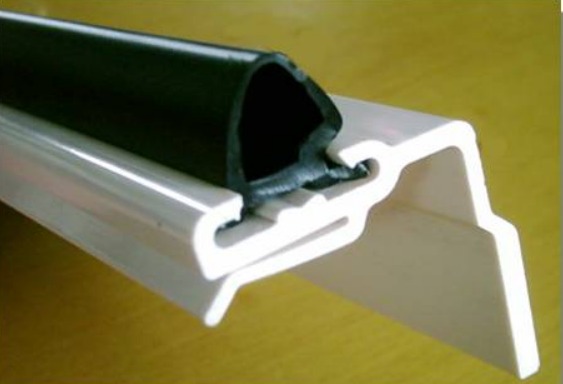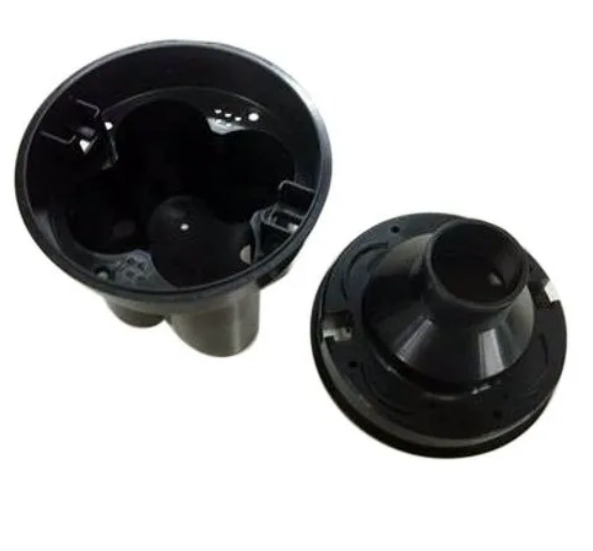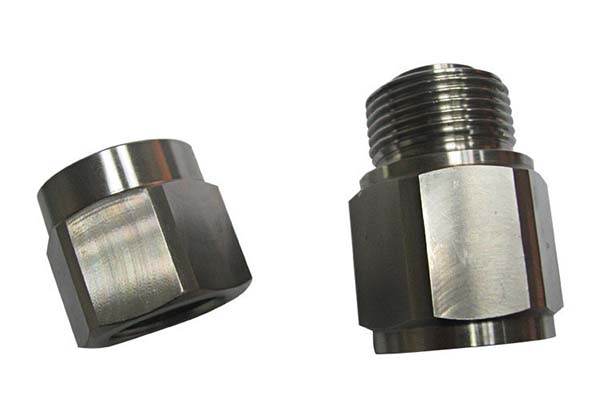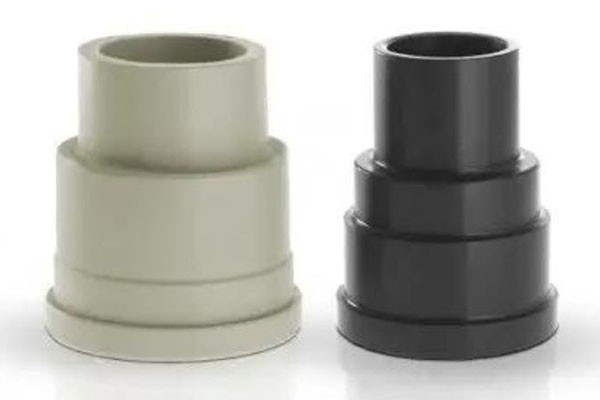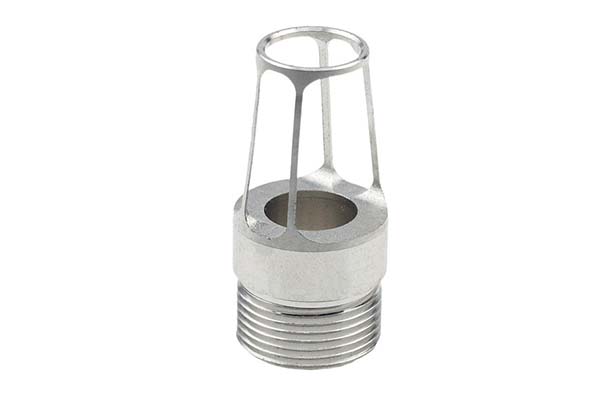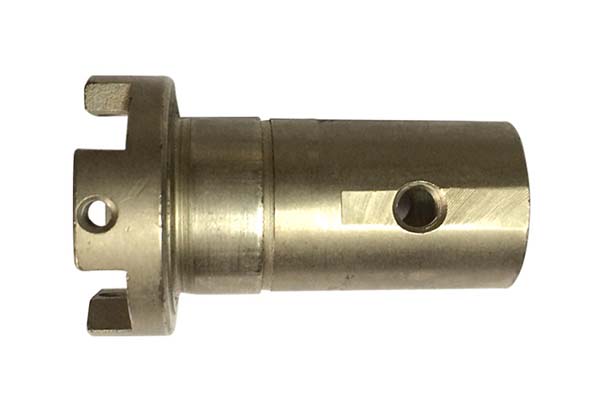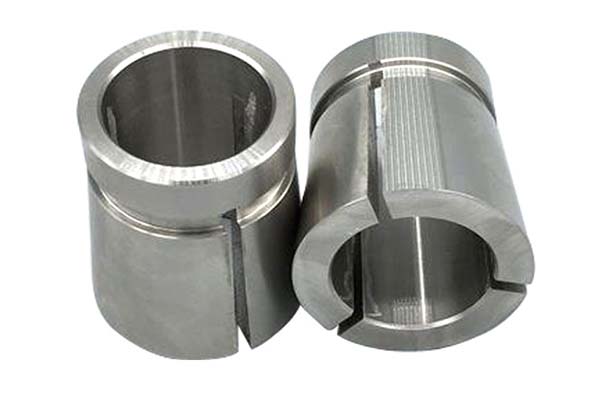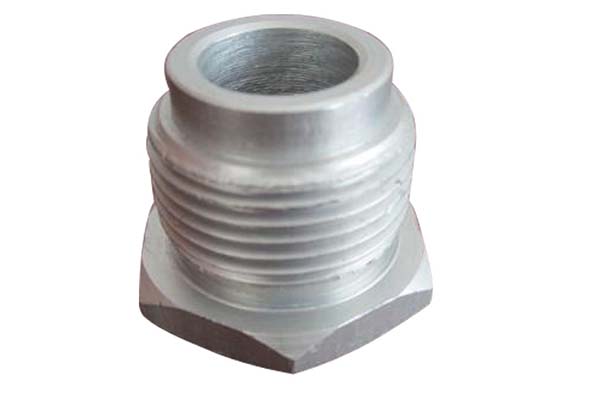Introduction to Precision Machining Services
In the modern manufacturing landscape, precision machining services have emerged as a cornerstone for industries aiming to produce high - quality, intricate components. Precision machining refers to the process of creating parts with extremely tight tolerances, often within the micron or even sub - micron range. This level of accuracy is crucial for the proper functioning of components in various sectors such as aerospace, automotive, medical, and electronics.
For example, in the aerospace industry, turbine blades for jet engines need to be manufactured with precision. A slight deviation in the shape or size of these blades can lead to inefficiencies in engine performance, reduced fuel efficiency, and even safety risks. In the medical field, components for surgical instruments and implants must be precisely machined to ensure compatibility with the human body and optimal functionality.
Precision machining services not only ensure the production of high - quality parts but also contribute to cost - effectiveness in the long run. By minimizing errors and reducing the need for rework, manufacturers can save both time and resources. This article will delve into the techniques, equipment, and sustainability aspects of precision machining services, aiming to provide a comprehensive understanding for manufacturers and those interested in this critical manufacturing process.
Precision Machining Techniques
Traditional Precision Machining Techniques
- Turning: In turning, the workpiece rotates while a cutting tool moves along the axis or radius of the workpiece. This technique is mainly used for manufacturing cylindrical or conical parts, such as shafts and discs. For example, in the automotive industry, engine shafts are often turned to achieve the required dimensional accuracy and surface finish. The principle is straightforward - as the workpiece rotates, the cutting tool removes material layer by layer, shaping the part. However, its limitation lies in its relatively low efficiency when dealing with complex shapes, and it is mainly suitable for parts with rotational symmetry.
- Milling: Milling involves a rotating cutting tool moving along the workpiece in various directions. It is highly versatile and can be used to create flat surfaces, slots, and even complex 3D shapes like gears. In the production of mechanical parts, milling is often used to machine the surfaces of components. For instance, in the manufacturing of engine blocks, milling is used to create the flat mating surfaces. But milling can be time - consuming for large - scale production, and the complexity of the tool path programming can be a challenge.
- Grinding: Grinding uses an abrasive wheel to remove material from the workpiece surface. It is typically used for finishing operations, achieving high - precision tolerances and excellent surface finishes. For example, in the aerospace industry, components like turbine blades are ground to ensure smooth surfaces for optimal aerodynamic performance. Grinding is effective for hard materials but has a relatively slow material - removal rate, and the cost of the abrasive wheels can be high.
Advanced Precision Machining Techniques
- Electrical Discharge Machining (EDM): EDM works on the principle of thermal erosion. A series of electrical discharges between the tool (electrode) and the workpiece melt and vaporize small amounts of the workpiece material. It is ideal for machining hard and brittle materials, as well as creating complex shapes that are difficult to achieve with traditional methods. For example, in the production of injection molds with intricate cavities, EDM is often used. The main advantage is that it can machine materials regardless of their hardness, and there is no mechanical force applied to the workpiece. However, the process is relatively slow, and the electrode wear can affect the accuracy over time.
- Electrochemical Machining (ECM): ECM is based on the principle of electrochemical anodic dissolution. The workpiece acts as the anode and the tool as the cathode in an electrolyte - filled gap. As an electric current passes through, the metal on the workpiece surface dissolves. This method is suitable for machining complex - shaped parts, especially those made of difficult - to - machine materials. For instance, in the aerospace industry, it can be used to machine turbine blades. ECM offers high material - removal rates, good surface quality, and no tool wear. But it requires complex equipment, and the disposal of electrolyte waste can be an environmental concern.
- Laser Machining: Laser machining uses a high - energy laser beam to melt, vaporize, or ablate the workpiece material. It is highly precise and can be used for micro - machining, such as creating micro - holes in electronic components. The advantage of laser machining is its non - contact nature, high precision, and the ability to work on a wide range of materials. However, the equipment cost is high, and the processing speed may be limited for large - scale operations.
| Machining Technique | Material - Removal Principle | Advantages | Disadvantages | Typical Applications |
| Turning | Mechanical cutting by a fixed - position tool on a rotating workpiece | High - precision for rotational - symmetric parts, good surface finish in some cases | Low efficiency for complex shapes, limited to rotational - symmetric parts | Engine shafts, cylindrical parts in automotive and machinery industries |
| Milling | Mechanical cutting by a rotating tool on a stationary or moving workpiece | Versatile for creating various shapes, suitable for multi - surface machining | Time - consuming for large - scale production, complex tool - path programming | Engine blocks, mechanical components with complex surfaces |
| Grinding | Abrasive removal by an abrasive wheel | High - precision finishing, good for hard materials | Slow material - removal rate, high cost of abrasive wheels | Aerospace components like turbine blades, precision - machined parts requiring high - quality surface finish |
| EDM | Thermal erosion through electrical discharges | Can machine hard and brittle materials, suitable for complex shapes | Slow process, electrode wear affects accuracy | Injection molds, die - casting molds, and parts with complex cavities |
| ECM | Electrochemical anodic dissolution | High material - removal rate, no tool wear, good for difficult - to - machine materials | Requires complex equipment, environmental concerns with electrolyte waste | Aerospace components like turbine blades, parts with complex geometries |
| Laser Machining | Melting, vaporizing, or ablating by a high - energy laser beam | Non - contact, high precision, suitable for micro - machining and a wide range of materials | High equipment cost, limited processing speed for large - scale operations | Micro - holes in electronic components, cutting and marking of various materials |
Essential Equipment in Precision Machining
CNC Machines
Computer Numerical Control (CNC) machines are at the heart of precision machining. These automated machines are programmed to execute complex machining operations with high precision. There are several types of CNC machines, each with its unique functions:
- CNC Lathes: They are primarily used for turning operations. By rotating the workpiece while a cutting tool moves along the axis or radius, they can produce cylindrical or conical parts. For example, in the automotive industry, engine crankshafts are often machined on CNC lathes. The precision of a high - end CNC lathe can reach up to 0.005mm in diameter tolerance, ensuring the smooth operation of engines.
- CNC Milling Machines: These machines use a rotating cutting tool to remove material from the workpiece. They are highly versatile and can create flat surfaces, slots, and complex 3D shapes. In the production of aircraft components, CNC milling machines are used to machine parts with complex geometries. High - precision CNC milling machines can achieve a positioning accuracy of 0.001mm, which is crucial for the tight tolerances required in aerospace applications.
- CNC Grinding Machines: Grinding is a finishing operation, and CNC grinding machines are designed to achieve extremely high - precision tolerances and excellent surface finishes. In the manufacturing of optical lenses, CNC grinding machines are used to grind the lens surfaces to the required curvature with a precision of up to 0.0001mm.
Precision Measurement Tools
Precision measurement tools are equally important in precision machining as they ensure that the machined parts meet the required tolerances.
- Coordinate Measuring Machines (CMMs): CMMs are used to measure the dimensions, shape, and position of a workpiece. They can measure a wide range of geometric features, including length, diameter, angle, and surface profile. For example, in the automotive industry, CMMs are used to measure engine components. High - end CMMs can achieve a measurement accuracy of ±0.0005mm, allowing manufacturers to detect even the slightest deviations from the design specifications.
- Precision Gauges: Tools like calipers, micrometers, and dial indicators are also essential. A micrometer, for instance, can measure the diameter of a shaft with an accuracy of 0.01mm. In a mechanical workshop, a machinist uses a caliper to measure the outer diameter of a machined part during the production process. Dial indicators are used to measure small displacements or variations in the surface of a workpiece, with an accuracy of 0.001mm. These tools play a crucial role in quality control, allowing manufacturers to identify and correct any machining errors promptly.
How to Choose the Right Precision Machining Service Provider
Selecting the appropriate precision machining service provider is crucial for the success of any manufacturing project. Here are some key factors to consider:
- Equipment: A reliable provider should have a comprehensive range of advanced equipment. High - precision CNC machines are a must, as they ensure consistent quality and tight tolerances. For example, if you need parts with complex geometries, a provider equipped with multi - axis CNC milling machines will be more suitable. Additionally, having a variety of precision measurement tools like CMMs and high - accuracy gauges is essential to guarantee that the final products meet the required specifications.
- Technical Capabilities: The technical expertise of the service provider's team matters a great deal. They should be proficient in both traditional and advanced machining techniques. For instance, if your project involves hard and brittle materials, the provider should have experience with EDM or ECM. The ability to handle different materials, such as exotic alloys in aerospace applications or biocompatible materials in medical device manufacturing, is also important.
- Quality Control System: A robust quality control system is non - negotiable. Look for providers that have obtained relevant certifications like ISO 9001. They should conduct thorough inspections at every stage of the machining process, from raw material inspection to in - process checks and final product verification. This includes using advanced inspection techniques and having a well - defined procedure for handling non - conforming products.
- Sustainability Practices: In today's environmentally conscious world, a provider's commitment to sustainability is an advantage. This may involve using energy - efficient equipment, recycling materials, and minimizing waste. For example, a provider that recycles coolant and chips from the machining process is not only reducing environmental impact but also potentially lowering costs.
- Customer Service: Good communication and responsiveness are key aspects of customer service. The provider should be able to understand your requirements clearly, provide timely updates on the progress of your project, and be willing to collaborate to solve any issues that may arise during the machining process.
Yigu Technology's Perspective
As a non - standard plastic and metal products custom supplier, Yigu Technology deeply understands the significance of precision machining services. We pride ourselves on our advanced technical capabilities, which enable us to handle a wide range of complex machining tasks. Our state - of - the - art equipment, including high - precision CNC machines, ensures that we can achieve tight tolerances and high - quality finishes.
In terms of sustainability, we are committed to minimizing our environmental impact. We have implemented energy - saving measures in our production processes and actively recycle materials to reduce waste. By integrating these aspects, we aim to provide our customers with not only top - notch precision - machined products but also reliable services that meet the highest standards of quality, efficiency, and environmental responsibility.
FAQ about Precision Machining Services
What are the common tolerances achievable in precision machining?
The common tolerances in precision machining can vary depending on several factors such as the machining technique, equipment used, and the material being processed. In general, for high - precision CNC machining, tolerances can be achieved in the range of ±0.01mm to ±0.001mm. For example, in the aerospace industry, where components require extremely tight tolerances, some parts can be machined with tolerances as low as ±0.001mm. However, in more general precision machining applications, a tolerance of ±0.05mm is also quite common. Factors that can affect the achievable tolerances include the accuracy of the machine tool, the stability of the machining process, and the skill of the operator.
How can I ensure the quality of precision - machined parts?
To ensure the quality of precision - machined parts, several steps can be taken. First, choose a reliable precision machining service provider with a good reputation, advanced equipment, and a strong quality control system. A provider with relevant certifications like ISO 9001 is more likely to adhere to high - quality standards. During the machining process, closely monitor the operations, including checking the raw materials for any defects before starting the machining. Regularly inspect the parts during production using precision measurement tools such as CMMs and gauges. Conduct a final comprehensive inspection of the finished parts to verify that they meet all the design specifications in terms of dimensions, surface finish, and material properties.
What are the typical lead times for precision machining projects?
The lead times for precision machining projects can be influenced by multiple factors. These include the complexity of the part design, the quantity of parts required, the availability of raw materials, and the workload of the machining service provider. For simple, small - batch precision machining projects, the lead time may be as short as 1 - 2 weeks. However, for complex parts with tight tolerances and large production runs, especially when custom tooling or special materials are involved, the lead time can extend to 4 - 8 weeks or even longer. For example, if a project requires the machining of unique aerospace components with complex geometries and high - quality standards, it may take several months to complete due to the need for meticulous planning, multiple machining operations, and rigorous quality checks.
